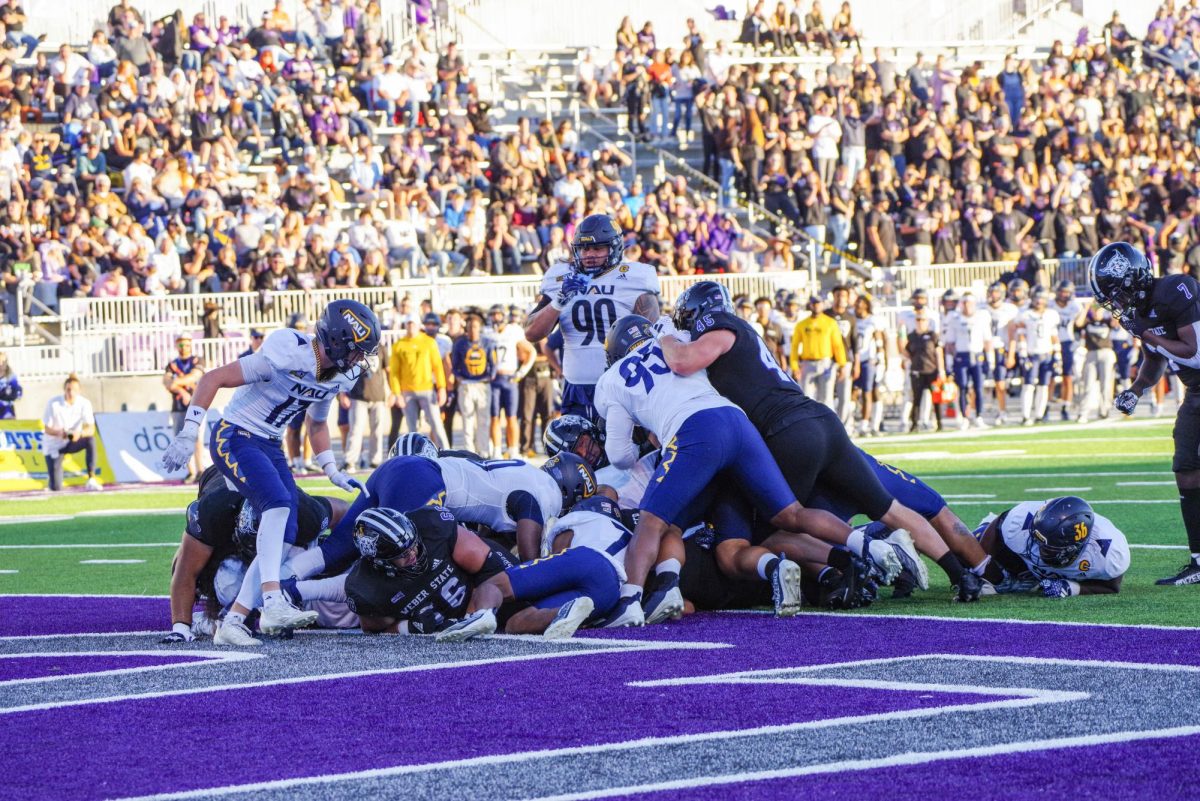
The Masters of Disaster team gathers around the game field to see Lego robots in action.
Bright lights, cameras and four game fields set the stage as children put their robot skills to the test. Weber State University hosted the FIRST Lego League competition for the Northern Utah Region on Jan. 11.
Participants ranged from grades 4-8. They came to hone their engineering skills by programming robots to navigate through a predetermined course set by the league.
“It gives a sporty competition feel to kids who want to be challenged more intellectually than physically,” said Rainie Ingram, STEP director at WSU.
The competition comprises four different areas where the teams are judged. First the teams are judged according to a project where they have to research a problem, find a solution and come up with a way to carry it out. The children have to do it all themselves, from the research to the robot.
“They have their coach, and their parents are their mentors, but they find solutions to their problems on their own, which I think is impressive,” said Tyler Baranawsky, coach of the WSU team, Team No-Name.
The teams are also judged based on their example of the core values of the league. The core values include honoring the spirit of friendly competition, sharing experiences with others, having fun, displaying gracious professionalism in everything they do, and working to find solutions with guidance from their coaches and mentors. These core values aren’t only designed to help the competition but to instill lifelong values in each of the participants.
“I love the positive values that they emphasize, that we’re a team and everyone contributes, which I think kids need more of these days,” said Pam Mattinson, a parent of one of the competitors.

The all-girls team Falcon Bots sport bow ties and suspenders for the competition.
The robot game and the design of the robot are the other two areas where each team can receive points. Each team spends time creating, designing, programming and testing each robot so it can independently perform challenges throughout the course of the game section.
Overall, the goal of all the sections is to instill teamwork. WSU and Hill Air Force Base teamed up to host and run the event.
Colonel Scott Nowlin, deputy associate director of engineering at WSU, and David Ferro, dean of the College of Applied Science & Technology, ensured their departments worked together to make a successful event.
“So much of what the kids are exposed to now are individual things, and these kids are learning how to work together and create and do things with technology that’s available in the area of robotics, creativity and innovation,” Nowlin said.
The Air Force sponsored the event, and “is very interested in seeing the development of these local schools, because it contributes to the long-term work force,” Nowlin said.
This was WSU’s third year hosting the competition, and each year it grows to include more teams.

A judge watches as teammates fix their Lego robot.
“It’s a good outreach for the college, and it would be great if a lot of these kids came (to WSU),” Ferro said. “It’s a good way to get kids excited about math and science, and these kinds of things help kids’ brains develop. I could be doing something else today, but it has actually been really fun to be here and see all the different projects.”
One of WSU’s goals is to be involved in the community and make an impact where it can.
“The idea that we’re linking up with the community and providing opportunities for people to learn, it’s part of the whole mission of Weber State,” Ferro said. “It’s not just good public relations, it’s what we’re supposed to be doing, and we like this kind of thing.”



















